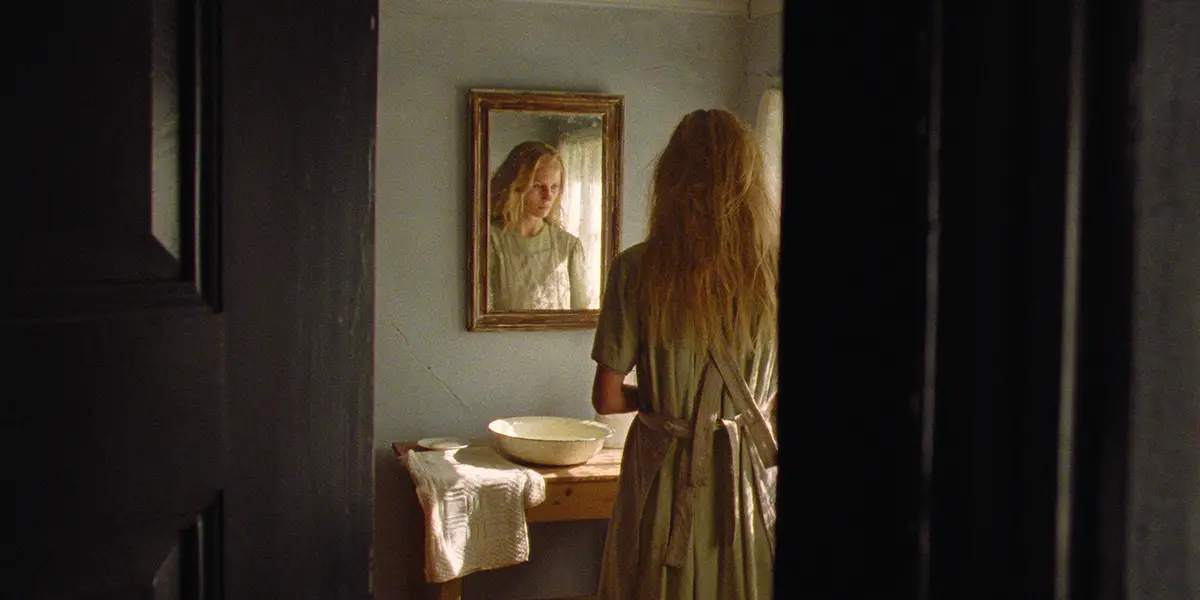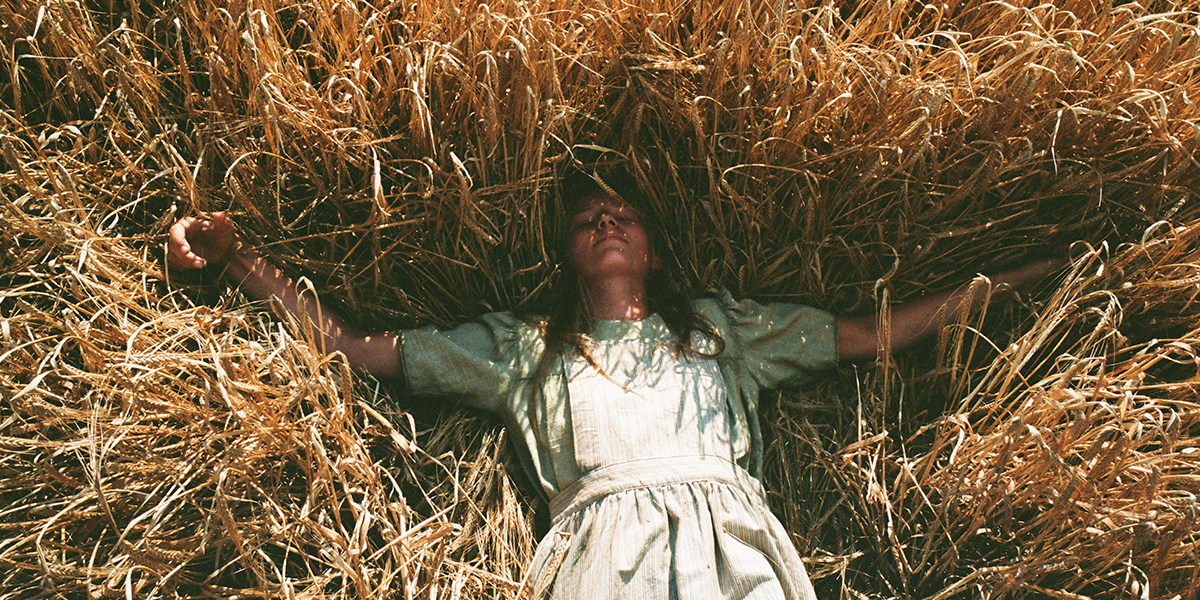The Toronto International Film Festival kicked off with a rocky start. However, the first films to initiate the festival were anything but disappointing. As in Heaven (Du som er i himlen), Tea Lindeburg’s directorial debut, was nothing short of an artistic dream.
On a farm in the 1800s, a young 14-year-old girl named Lise (Flora Ofelia Hofmann Lindahl) has her life planned out. The eldest daughter of a significantly large family, she is about to go away to pursue an education. All her plans, however, take a pause once her mother goes through complicated labor. The Danish film is a direct adaptation of Marie Bregendahl’s 1912 novel A Night of Death (En dødsnat). It tells the story of Bregendahl’s own experiences with her mother at the age of 12.
The visual language is the strongest player of As in Heaven. It is pleasing and inviting, yet haunting and absurd. It expresses itself through whimsy, but quickly challenges it all by way of evocative imagery, plaguing dialogue, and chilling sequences. Lindeburg crafts a masterful and majestic conversation between the viewer and the camera. The story itself transforms the way one may view the actions taking place in the period piece, compared to those happening in our present day.
In a stunning showcase of her talent, Lindeburg approaches every moment slow-paced and methodical. While this might allow for a full appreciation of the scenes, the picture suffers at the hands of this languish style. Nevertheless, it allows to present vivid imagery without entering the scene too late or leaving too early. The strong suit of the film lies in its stunning cinematography. Every moment feels like a photograph from a time forgotten. She also plays a lot with metaphors, symbols, and religious dogma.
READ: ‘Nine Perfect Strangers’ Ep. 6 – ‘Motherlode’ Review
It is a common thought to brush off antiquated views within a period film as it was a different time. That is until Lindeburg forces the viewer to confront the twisted reality that As in Heaven is simply a mirror of what goes on in our contemporary setting. A young woman is pressured to carry the weight of her family’s stability. Her mother’s pregnancy threatens her entire life, her hopes, and her dreams. This leads to Lindeburg’s discreet yet blatant punishment of women within the feature film, unjustly so. It is an outright critique of the power dynamics and irregularities when it comes to gender in society.
The film pits science and religion against each other at the expense of life in danger. There are also the ignorant and stubborn actions of many characters that disregard a woman’s choice over her own body. The commentary doesn’t end there, with other moments alluding to male insecurity’s need to lash out at women that are comfortable in their femininity. There are repercussions to being a woman, and oftentimes it is because of religion. Femininity is dissected through the eyes of the Lord, questioning whether religious views were restrictions made to benefit man over woman.
While Lindeburg manages to blend the naturalistic with the realistic, it doesn’t stop her from attempting to also channel the fantasy-like and the grotesque. Blood rains from the sky, a woman burns alive, and a phantom hand offers a comforting caress. These, however, are all illusions of foreshadowing. Lindeburg’s film takes the viewer through that journey of the mind of a young woman sluggishly seeing her world fall apart.
At its height, it is a challenge of turn-of-the-century thoughts. The rest follows a visual paranoia of growing up too soon with convincing performances, thought-provoking conversations, and dual expression of life, death, and pain. – Josie Meléndez
Rating: 8/10
As in Heaven‘s release date has yet to be announced.








Leave a Comment